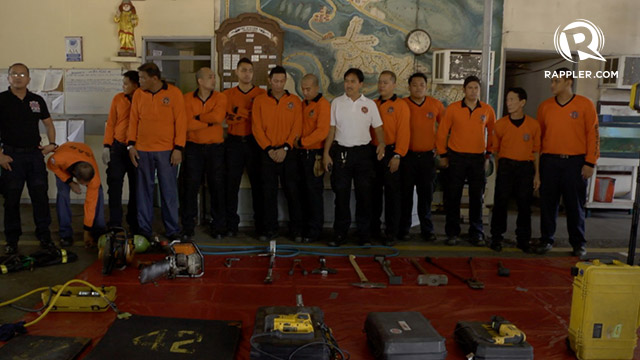SUMMARY
This is AI generated summarization, which may have errors. For context, always refer to the full article.

SUBIC, Philippines – One of the best rescue groups in the country talks about the business of saving lives.
David Lozada reports.
This is the daily routine of the Subic Bay fire and rescue team. They are ready anytime an emergency strikes.
SBMA fire chief Ranny Magno says they can respond to national and international calamities within a day. He says training the right people is key.
RANNY MAGNO, FIRE CHIEF: They have the discipline. First and foremost, you need to have the discipline and the passion. You cannot really mobilize in less than 24 hours.
Last October, the team was awarded the top Urban Search and Rescue team for the second time by the country’s top national disaster management recognition program. They’ve been deployed to Japan for the Fukushima nuclear leak and to the Visayas for super typhoon Haiyan.
Members of the SBMA fire rescue team regularly train here in the Boton station 4 center to enhance their skills on disaster response. Complete with different risk simulations, this facility has been used to train disaster response teams from local government units, the military and international groups. Aside from regular trainings, the SBMA rescue team follow the Incident Command System, a tool that helps in managing on-scene, all-hazard disasters and incidents.
RANNY MAGNO, FIRE CHIEF: ICS is a tool in managing on-scene disaster or emergency. It is flexible and modular. It can expand and can shrink depending on the kind of emergency. It is the only way we can really manage no matter how complex the incident is, like in Tacloban, Leyte and Samar.
SBMA deputy fire chief Gerardo Johnson says its not just systems that matter… but also funding.
GERARDO JOHNSON, DEPUTY FIRE CHIEF: Adapt tayo nang adapt ng training pero if we don’t have any financial support, walang mangyayari sa atin. (Training is one good way of adapting. But if we don’t have financial support, we will not get anywhere.)
Magno and Johnson both believe mitigation is still the best approach to disasters.
GERARDO JOHNSON, DEPUTY FIRE CHIEF: Climate change is the business ng bawat isa. Sabihin nating we are fully trained and we have manpower and equipment, kung wala namang participation ng mga tao, mahihirapan tayo ( Climate change everyone’s business. Even if we’re fully trained, even if we have the manpower and equipment, without the participation of the people, disaster response is difficult.)
David Lozada, Rappler Subic. – Rappler.com
Add a comment
How does this make you feel?
There are no comments yet. Add your comment to start the conversation.